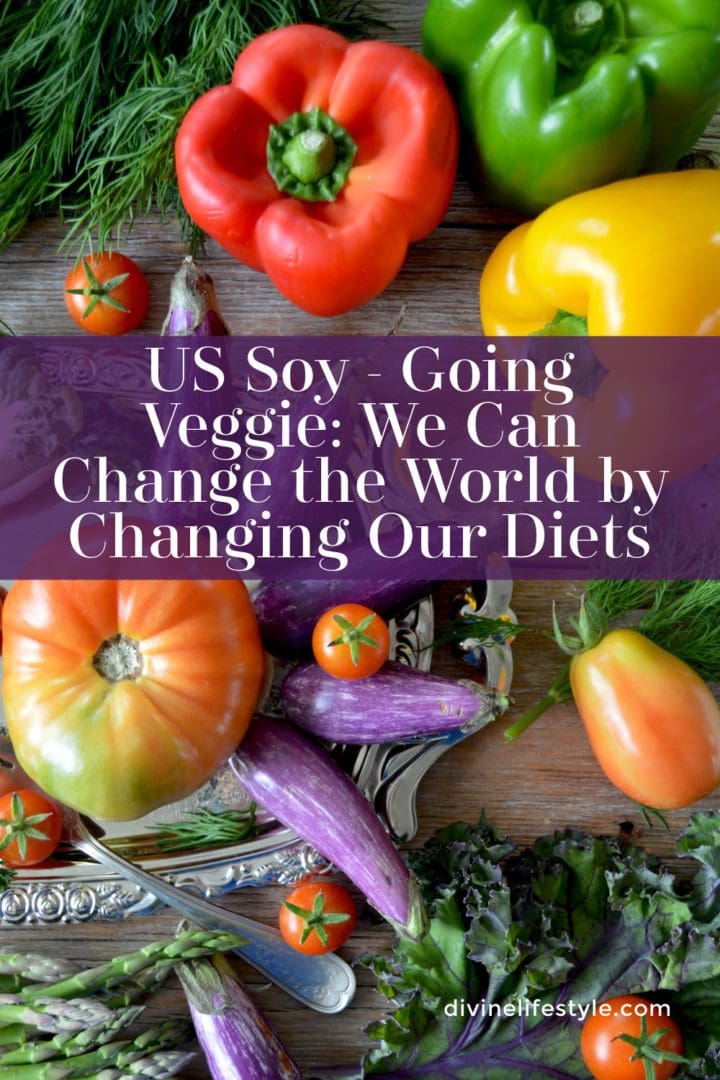Lean Cuisine Meals
Lean Cuisine Meals I have long loved Lean Cuisine meals. I have been eating them for years and I think that I can safely say that I have tried every single meal they have...
Deep down, all of us would like the world to be a better place. Even the richest people on Earth, sheltered from the outside world within their Hollywood mansions would have to bury their heads pretty deep in the sand to remain oblivious to the inequalities and existential threats our society faces. The world's richest 1% have more than twice as much wealth as some 6.9 billion people combined whilst global warming might reach irreversible levels as early as 2035. These two phenomena are inextricably linked: the inequalities our society allows have enabled a relatively tiny minority to make eye-watering profits from industries that are directly responsible for climate change. We hope that this US Soy – Going Veggie: We Can Change the World by Changing Our Diets post inspires you.

Now, most of you reading this will be, in the grand scheme of things, relatively well off, but an enormous gulf remains between us and the planet’s ultra-rich minority. This means that, while only a political sea change at the highest levels can reverse the inequality-climate change nexus, we are in a better position than most to make our actions count for something positive. Changes we make to our lifestyles now can have a dramatic impact going forward.
One of the most effective vehicles for major social change (beyond election day and street demonstrations) is the shopping trolley. The food choices we make each day or each week might seem insignificant but, over time, they contribute significantly to global warming and pollution. So, while becoming a vegetarian, vegan or simply cutting down your consumption of animal products might feel like jumping on a bandwagon, a bandwagon is precisely what we need to overturn the damaging trend of climate change.
A collective shift in our eating patterns can go a long way to saving the planet, so how do you play your part?
Important decisions still must be made even when choosing between ostensibly ‘green’ products. Does the ‘revolutionary’ meat substitute rely on ethical soy farming or unsustainable Amazon soybeans? Do my Fair Trade, sustainably sourced fruits and vegetables carry with them a heavy burden of air miles? It is important to also bear in mind the intelligence of marketing campaigns by your favorite brands who promise to ‘plant trees’ despite the tangible impact of such schemes being negligible.
It is all well and good for someone like me to tell you about why we need to change our diets and our consumer behavior for the greater good but the most effective lessons are the ones you learn for yourself. The importance of embracing vegetarianism, veganism, and everything in between, then, will sink in better if you do a bit of your reading into the wider issues I have mentioned. So, strange as it seems, the first step towards a more sustainable diet involves no food at all, just the squishy matter inside your head. Critical thinking is key. Use reputable, scientific sources such as National Geographic, Nature, or Science Daily, not some bloke you came across on YouTube.
As I mentioned previously, these changes in our consumer choices are not the solution in and of themselves. They must form part of a wider movement to tackle inequality and climate change. Together, we will make our voices heard. We hope that this US Soy – Going Veggie: We Can Change the World by Changing Our Diets post inspires you.
Pingback: Easy Steps Towards Sustainability Green Living Divine Lifestyle
Pingback: Healthy mood foods that would boost your spirit on a bad day - Divine Lifestyle
Pingback: Ideas for Incorporating Big and Small Sustainable Life Choices
Pingback: 10 Things to Eat for a Healthy Brain Function